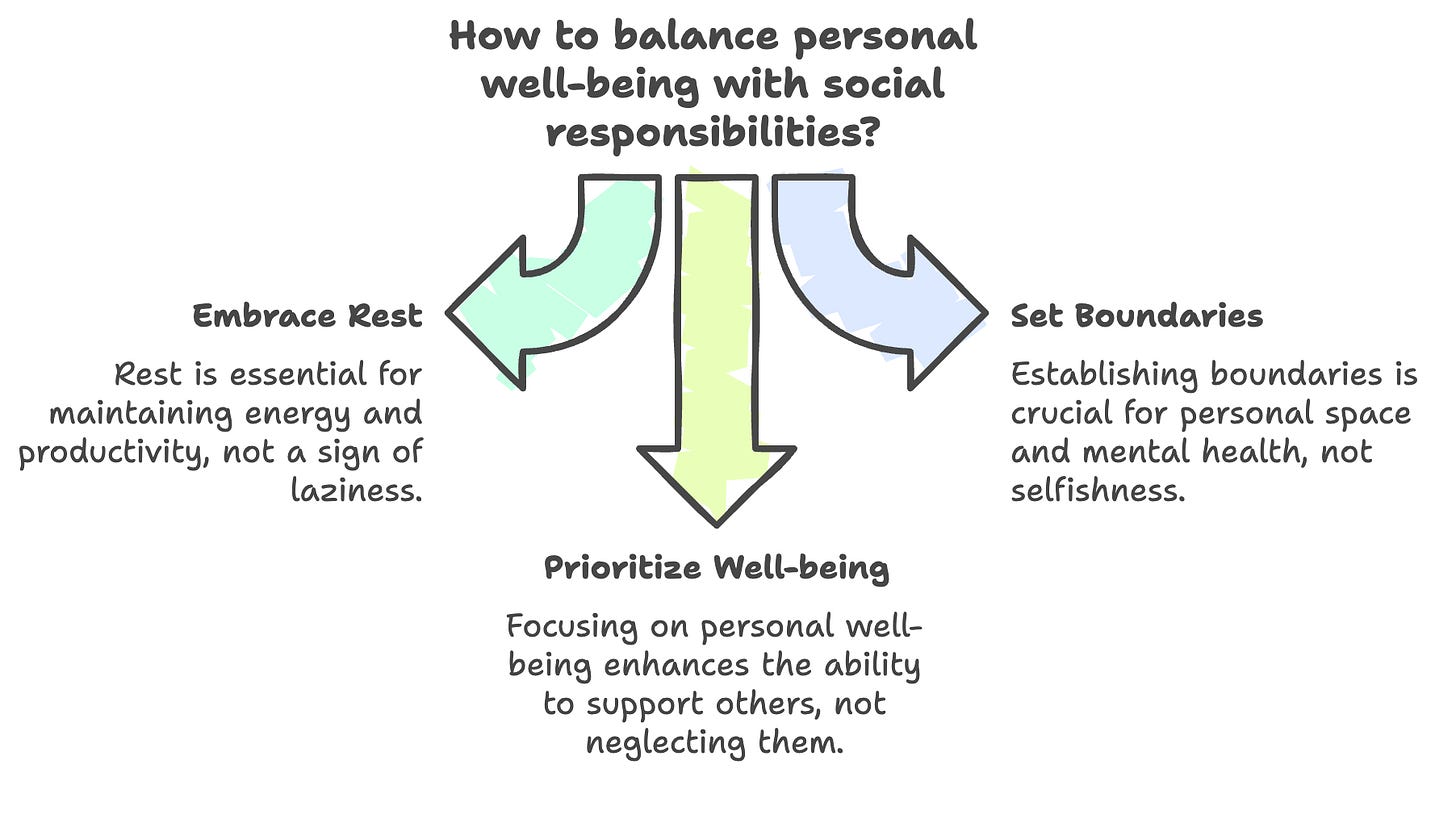
Connected Peace: Are you pouring from an empty cup?
I don’t have to go back far in my memories to recall the last time I felt guilty.
Guilty about taking time for myself.
Guilty for saying no.
Guilty for not meeting someone’s expectations.
I’ll take a risky bet and say that you won’t have to either.
We’ve become guilt machines! Sometimes letting guilt dictate our lives.
Guilt has a way of creeping in, even when we know we’re doing what’s best for ourselves. We feel it when we set a boundary, when we prioritize our well-being, or when we make a decision that doesn’t align with what someone else wants from us.
The question is: Is this guilt justified? or is it just conditioning?
Some guilt serves a real purpose—it reminds us to act within our core values that we’ve set for ourselves. It nudges us to make amends when we’ve hurt someone, to align our actions with our integrity.
But much of the guilt we carry isn’t about doing something wrong—it’s about stepping outside of expectations.
We grew up learning:
Not to be selfish-Always consider others before ourselves.
Put others first-Prioritize their needs, even at our own expense.
Work really hard-Say yes, even when we mean no.
Not to be rude-Say yes, even when we mean no.
The lessons were meant to shape us into kind, considerate and hard working people. However, we are also taught to use logical thinking and common sense.
And common sense dictates that you can’t give what you don’t have.
You can’t pour from an empty cup.
You can’t be everything to everyone without losing yourself.
You can’t give endlessly without eventually running dry.
Yet, we feel guilty when we choose to pause, set boundaries, or prioritize our well-being.
Is any of this ringing a bell?
Let’s switch gears and ask some questions:
☐ Have you ever said yes to something you didn’t want to do—just to avoid feeling guilty?
☐ Have you ever felt exhausted but pushed through anyway because “resting” felt unproductive?
☐ Have you ever put someone else’s comfort above your own, even when it drained you?
☐ Have you ever felt guilty for taking time for yourself?

Created with Napkin Ai
If you answered yes to any of these, you’re not alone. We’ve been conditioned to equate self-sacrifice with goodness. But the truth is:
Rest is not laziness.
Boundaries are not selfish.
Prioritizing your well-being does not mean neglecting others.
Connected Peace isn’t about choosing between yourself and others—it’s about learning to honor both.
So, next time guilt creeps in, pause and ask yourself:
✔ Is this guilt justified, or is it just a habit?
✔ What would I tell a friend in my position?
✔ What if I let go of the guilt and embraced peace instead?
Because when we make peace with ourselves—when we release unnecessary guilt, set boundaries, and lead with resilience—we show up stronger, clearer, and more present for others.
We can serve others so much better when we’ve found our own Connected Peace.
Wo What Do You Do?
Now that we’ve explored how guilt sneaks into our lives and interferes with our peace, the question is: How do we break free from it?
Here are three steps to start cultivating Connected Peace today:
1️⃣ Recognize the Guilt Pattern
Pay attention to when and why guilt shows up. Is it when you set a boundary? When you take time for yourself? When you don’t meet someone’s expectations? Naming the pattern is the first step to breaking it.
2️⃣ Question the Guilt
Not all guilt is created equal. Ask yourself:
✔ Is this guilt valid, or is it just a learned response?
✔ Would I want a friend to feel guilty about the same thing?
✔ What’s the worst that will happen if I let this guilt go?
3️⃣ Choose Peace Over Guilt
Instead of reacting from guilt, make a conscious decision: What choice will bring me peace in the long run? You don’t have to justify rest, explain your boundaries, or overextend yourself to prove your worth. You are allowed to choose yourself.
Your Turn:
What’s one thing you can stop feeling guilty about today?
Hit reply or leave a comment—I’d love to hear your thoughts. Let’s create Connected Peace together.
Because when we choose peace over guilt, we don’t just improve our own well-being—we show up stronger, clearer, and more present for the people who matter most.

